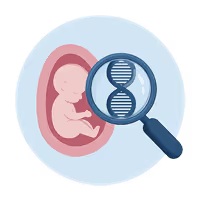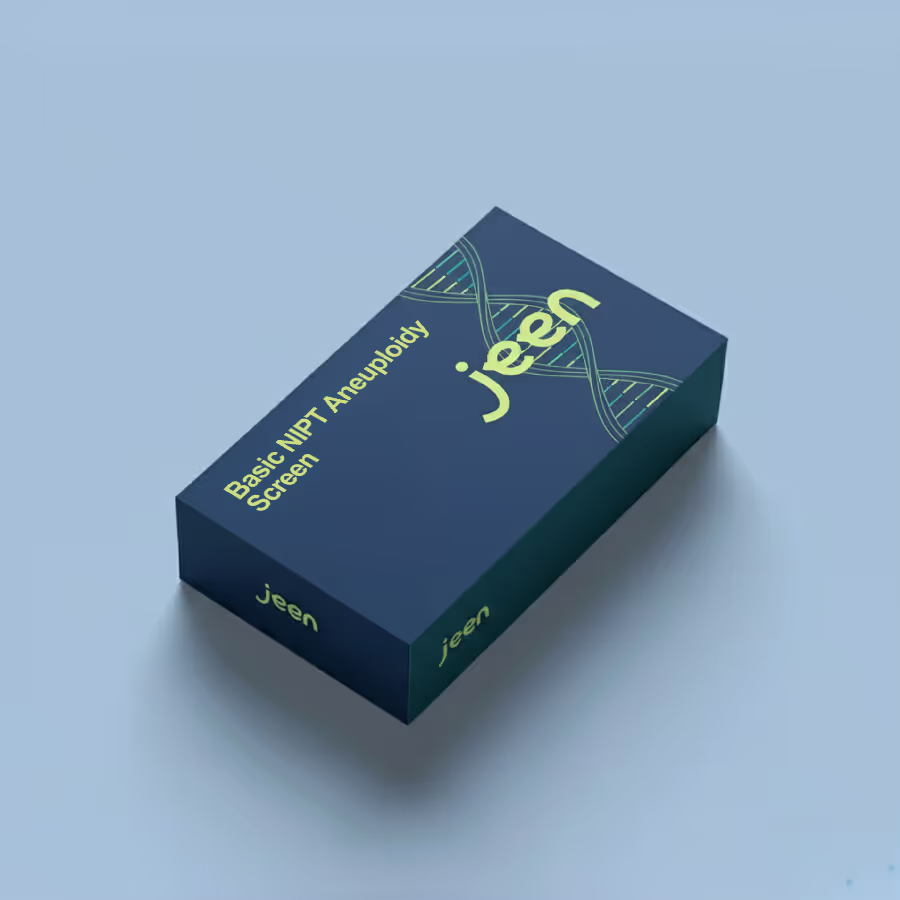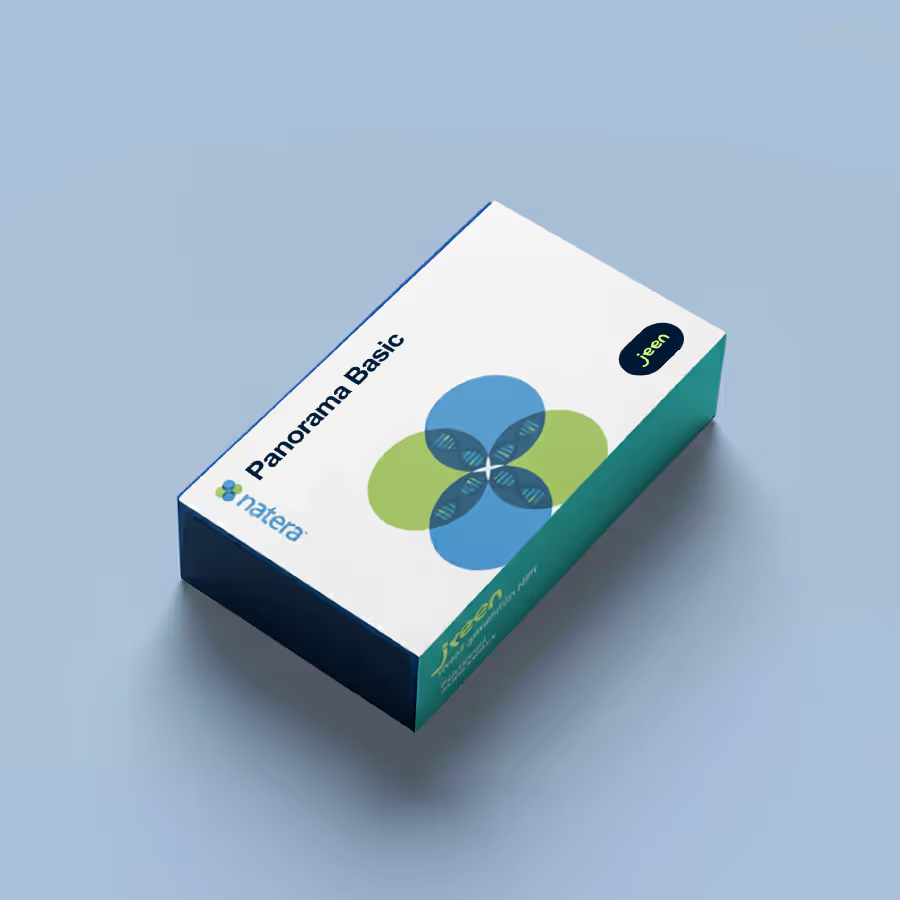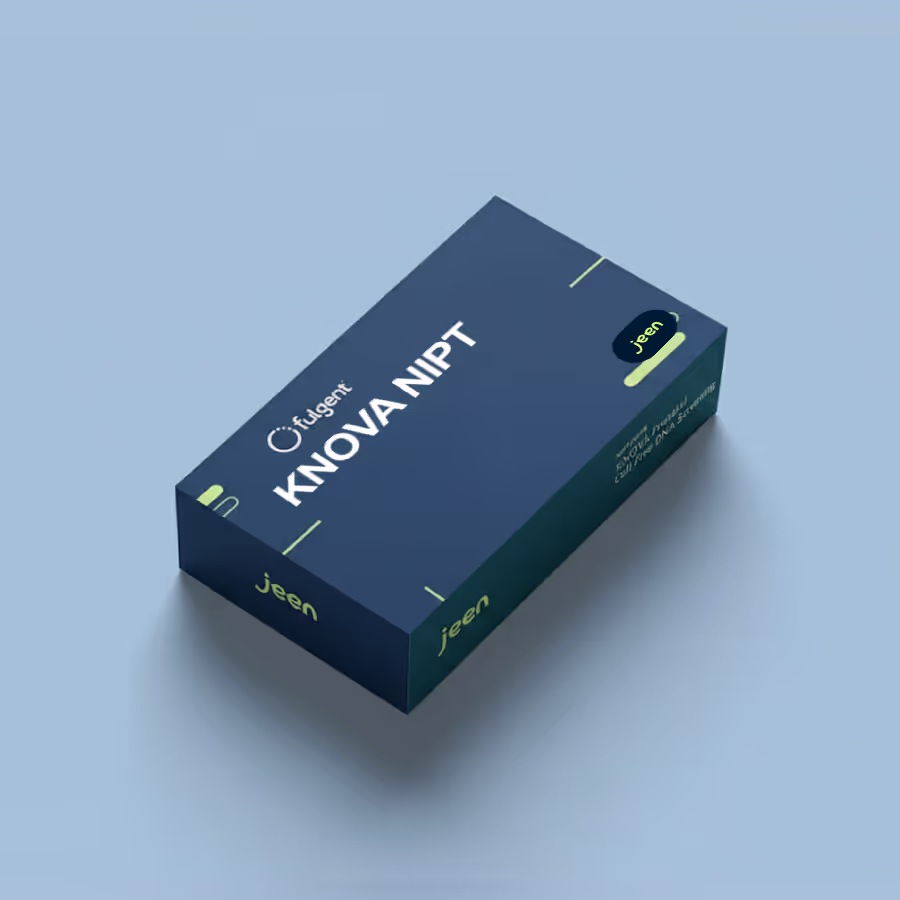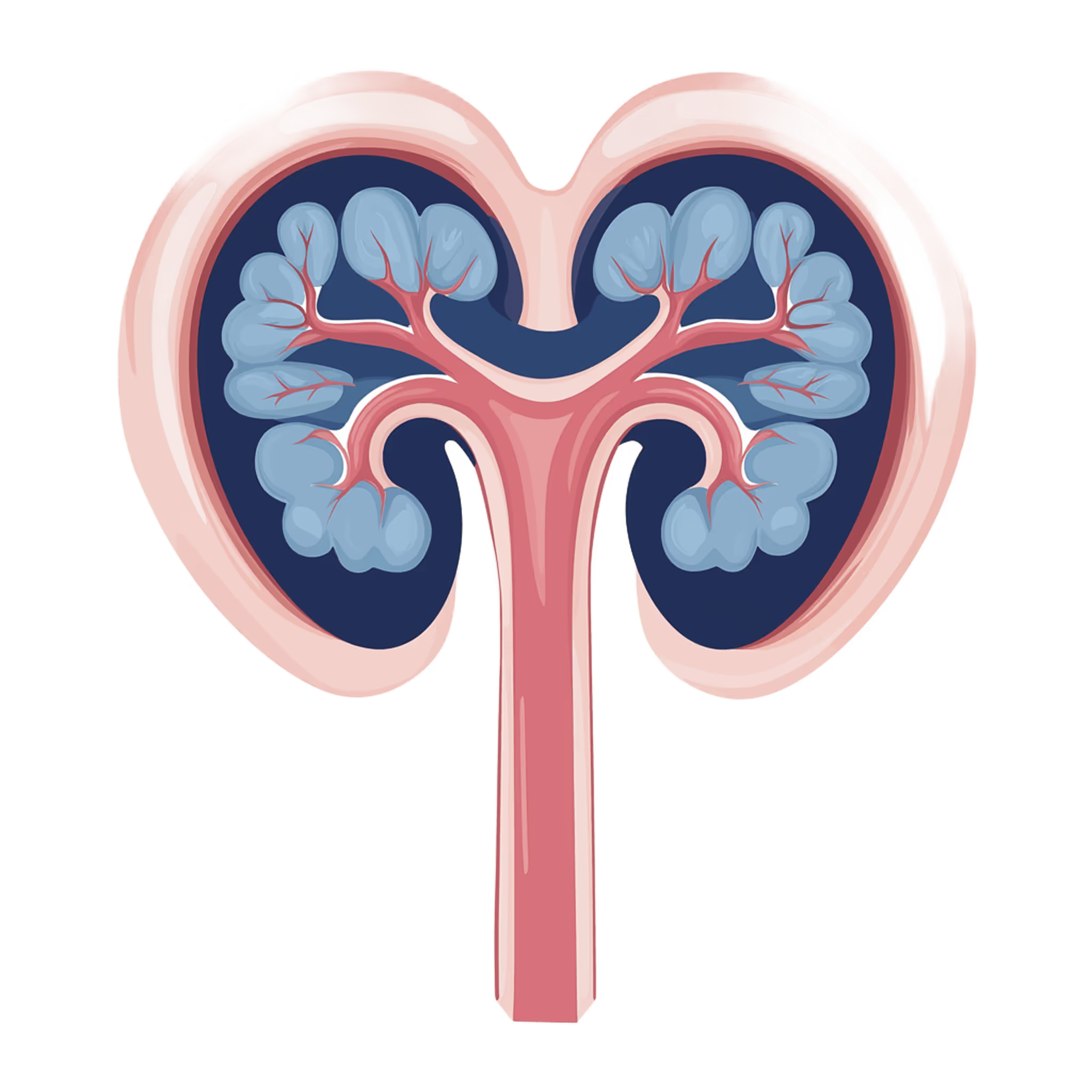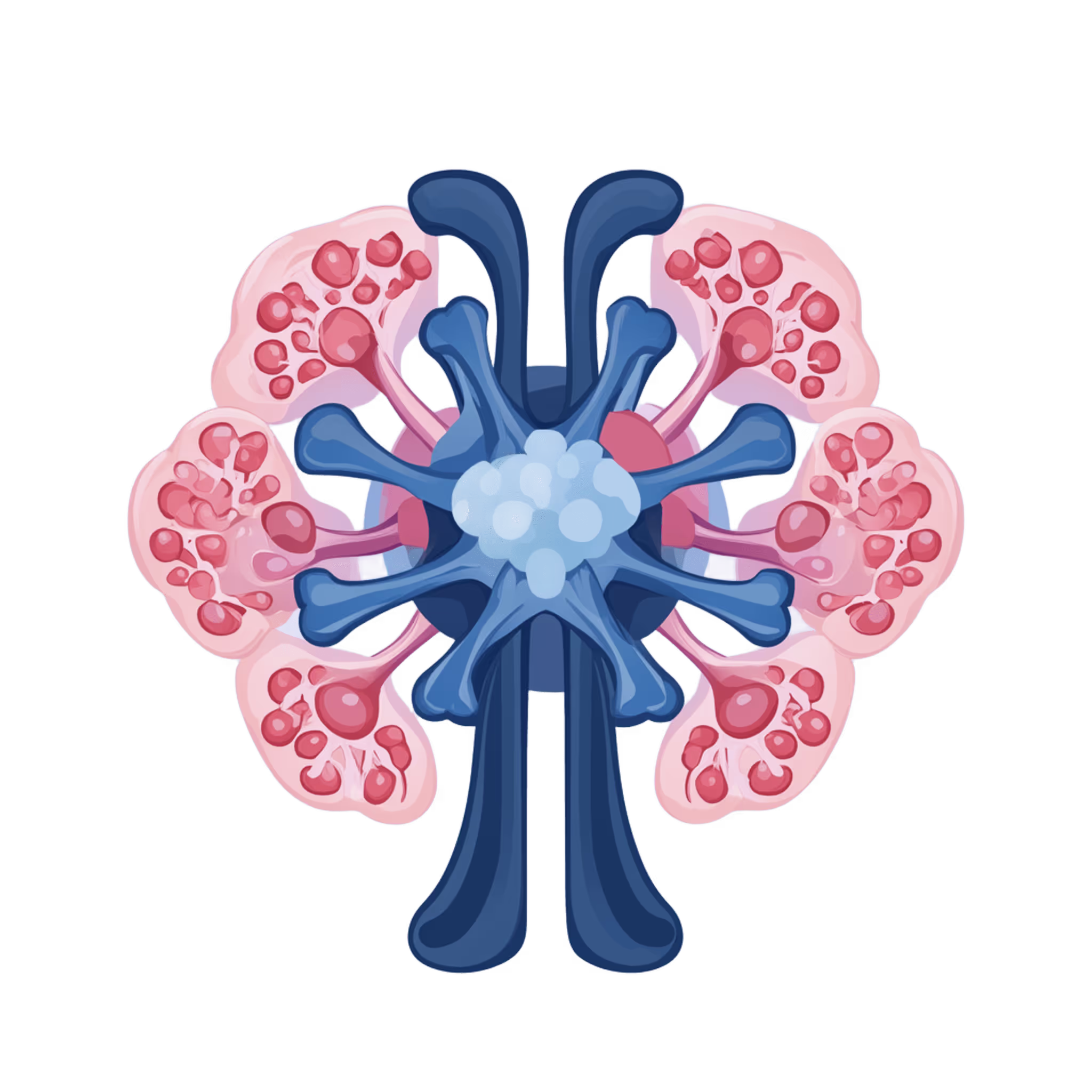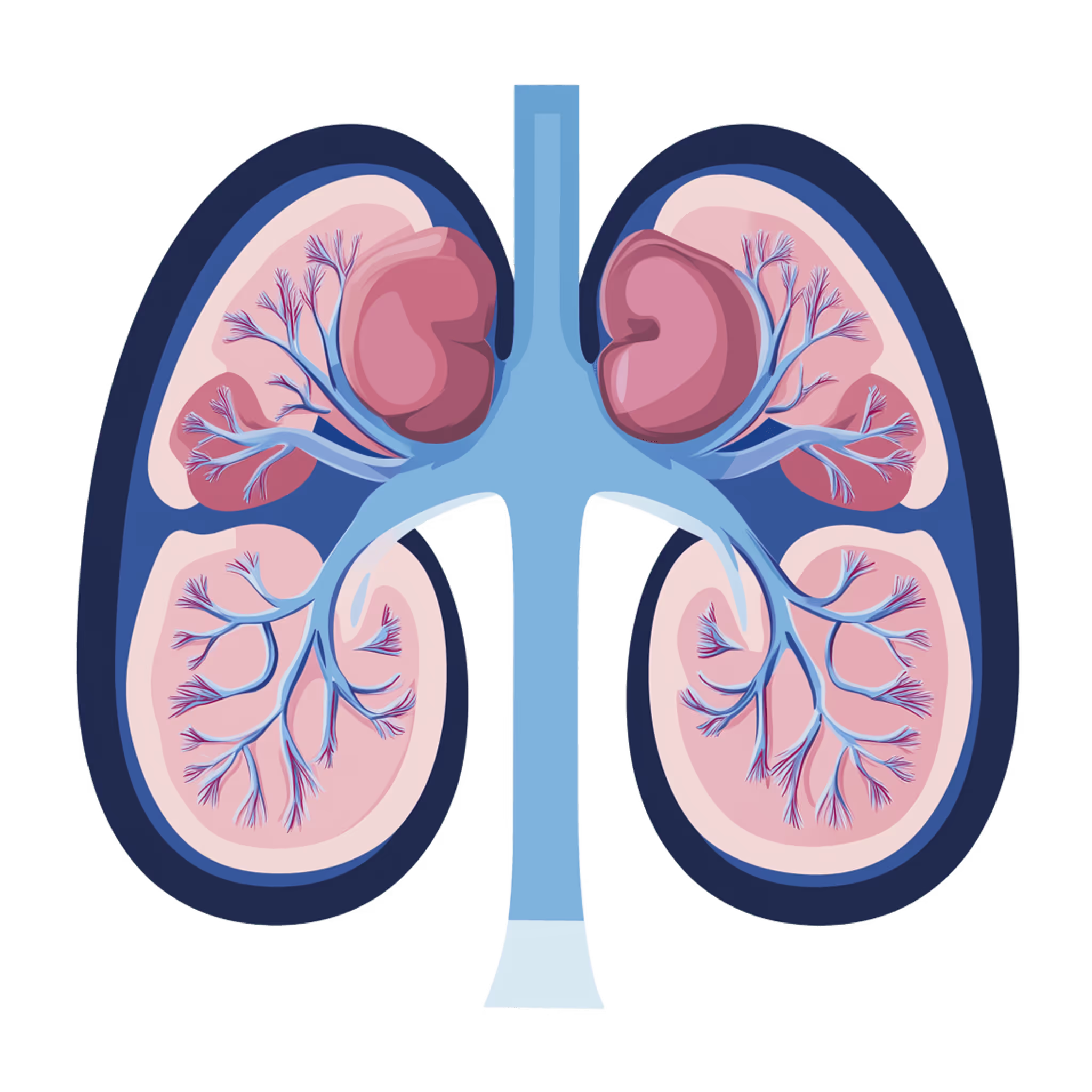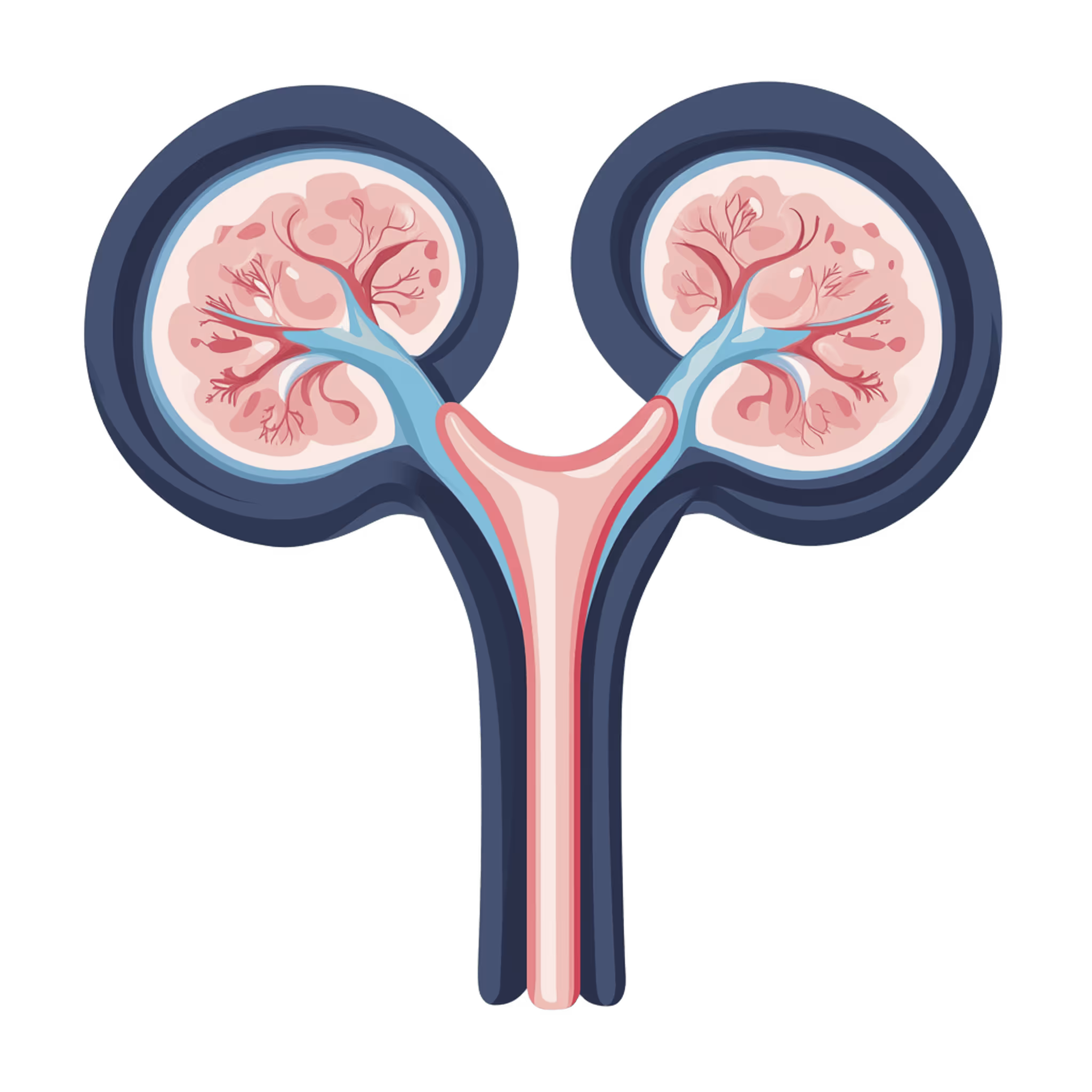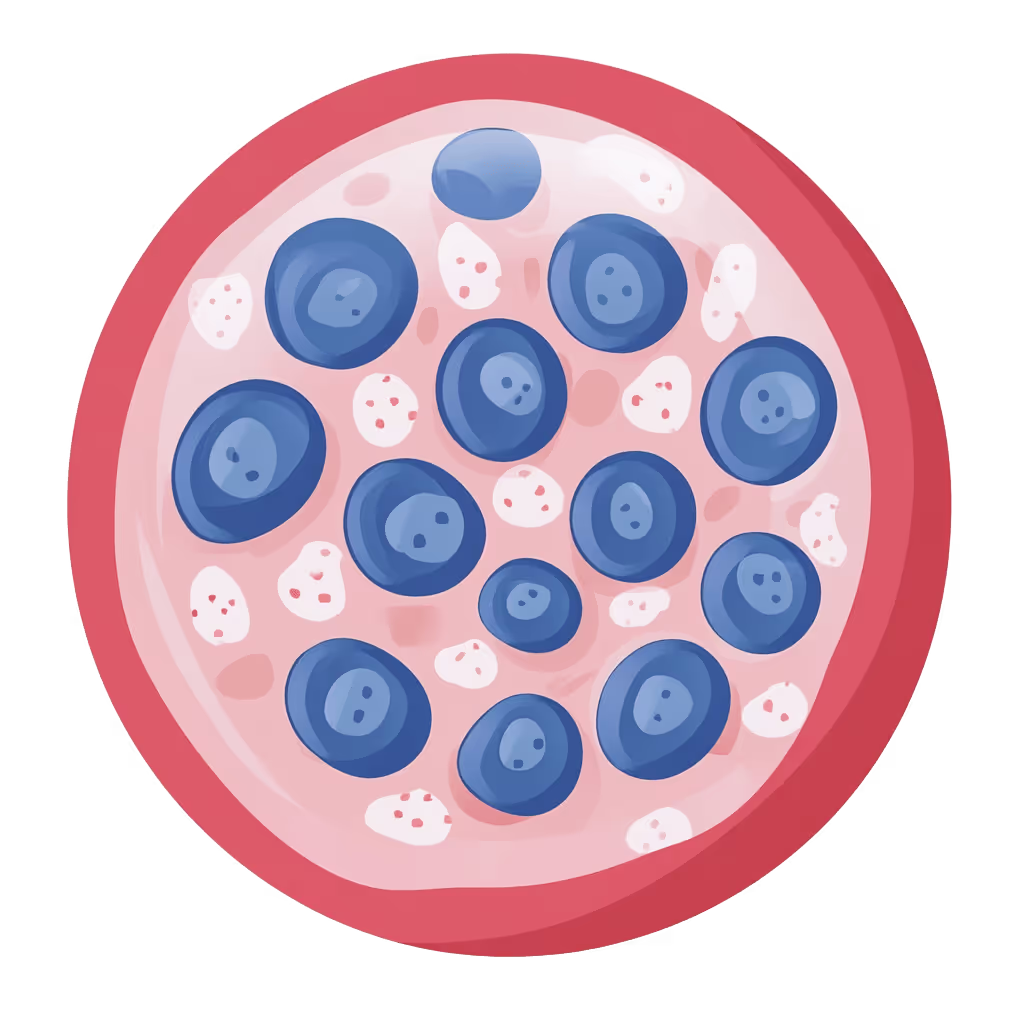Why choose Panorama Microdeletions NIPT?
- AI-enhanced SNP technology: Combines artificial intelligence with advanced genetics for better accuracy.
- Only NIPT that screens for Triploidy: A rare but serious condition affecting 1 in 1,000 pregnancies at 9 weeks.
- Safe and Simple: Requires only a single tube of maternal blood; no risk to you or your baby.
- DiGeorge: Validated in the largest prospective study for 22q (DiGeorge) syndrome
- Optional Gender Reveal: Find out your baby’s sex with over 99% accuracy, if you wish.
What conditions does Panorama Microdeletions screen for?
Panorama screens for a select group of well-characterised microdeletion syndromes, including:
- Common trisomies: Down's syndrome (Trisomy 21), Edwards' syndrome (Trisomy 18) and Patau syndrome (Trisomy 13)
- Sex chromosome conditions: Turner syndrome, Klinefelter syndrome and Other X/Y chromosomal changes
- 5 microdeletion syndromes, including: DiGeorge syndrome (22q11.2 deletion), Cri-du-chat syndrome, 1p36 deletion syndrome, Prader-Willi and Angelman syndromes
- Optional Fetal Sex Determination: Know your baby’s sex early, if desired.
Microdeletions are small missing segments of DNA on specific chromosomes. These missing pieces can affect several genes, often leading to developmental delays, learning disabilities, physical differences, or medical conditions. Unlike more common conditions like Down’s syndrome, microdeletions may not be picked up in standard screening, making early detection with Panorama especially valuable.
How does the Panorama Microdeletions work?
From just a single maternal blood draw at 9 weeks, Panorama Microdeletions can assess your baby’s risk for a range of rare genetic conditions. The sample is processed in a state-of-the-art US laboratory, where specialised genomic analysis and AI-driven technology are used to identify tiny missing segments of DNA. You’ll typically receive your results within 7 to 10 working days, giving you early insight with no risk to your pregnancy.
What are the limitations Panorama Microdeletions?
Panorama Microdeletion screening is not available for:
- Twin pregnancies
- Egg donation pregnancies
- Cases involving vanishing twin
This screening also has these limitations:
- Turnaround time is typically 7-10 working days due to US lab processing
- Extended panels (sex chromosomes, triploidy, microdeletions) may have a higher false positive rate
- Some results may not be covered by the NHS and could require private genetic counselling or follow-up tests (e.g. CVS or amniocentesis)
Who Should Consider Panorama Microdeletions?
Panorama Microdeletions is an ideal option for parents who want to screen for rare but serious genetic conditions that may not be covered by standard NIPT. It may be especially suitable if:
- You’d like early, non-invasive insight into conditions like DiGeorge syndrome, Cri-du-chat, or Angelman syndrome.
- Your 12-week scan shows increased nuchal translucency or other early concerns.
- You want to go beyond common chromosomal screening for Down’s, Edwards’ and Patau syndromes.
- You have a family history of rare genetic syndromes or unexplained developmental conditions.
- You’re seeking peace of mind during pregnancy, even with no known risk factors.
Please note: Panorama Microdeletions screening is only available for singleton pregnancies and is not recommended for twin pregnancies, egg donation, or vanishing twin cases.
What Are My Blood Draw Options for Panorama Microdeletions NIPT?
In line with our flexible, prevention-first approach, Jeen Health offers multiple convenient options for how you provide your DNA sample for Panorama Microdeletions NIPT:
- Self-Arranged Blood Draw (Free): We'll send your Panorama Microdeletions NIPT kit and you can then arrange your own blood draw with a local nurse, midwife, phlebotomy service, or clinic. Many patients ask their private GP, or maternity care provider to assist. Please ensure your provider is comfortable drawing into the NIPT-specific tubes supplied in your kit. If needed, we can share instructions.
- Best if you already have a provider you trust
- No added charge from Jeen, but you may need to pay your chosen provider directly
- Nationwide availability across the UK and some EU region
- Jeen Clinic Network (+£40): Prefer a clinic-based option? Book a blood draw appointment at one of our 40+ trusted partner locations across the UK.
- Home Visit (+£65): Need maximum convenience? We’ll send a qualified nurse to your home to take your blood sample.
- Ideal for patients with mobility, time or privacy needs
- Available across most of the UK and appointments coordinated by our team
These sample collection options ensure NIPT is accessible on your terms.



